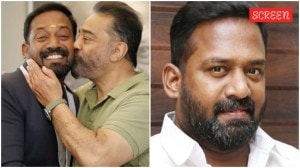Fresh crisis in Nepal as PM quits
Nepal's embattled Prime Minister Jhalanath Khanal resigned from his post.
Nepal’s embattled Prime Minister Jhalanath Khanal resigned from his post Sunday,making way for the emergence of a new government.
He tendered his resignation to President Ram Baran Yadav,the Presidents office confirmed,adding that while his resignation had been accepted,he had been asked to continue in the post till further arrangements were made.
Khanal has been facing mounting pressure to quit from his own party,the Communist Party of Nepal-Unified Marxist Leninist (CPN-UML),as well as the main Opposition,the Nepali Congress.
Till Sunday afternoon,he maintained that his resignation would jeopardise the constitution framing process and would plunge the country into a fresh crisis. He had said earlier that without an agreement on a successor the Constituent Assemblys work would be hampered given its deadline of August 31.
The four major parties the Maoists,Nepali Congress,CPN-UML and Madhesi Front have been unable to reach a consensus on a prime ministerial candidate. The new prime minister will have to be elected by a simple majority of parliament.
Khanal is expected to address parliament on Monday and detail the reasons for his resignation. According to his supporters,he will place the blame for his premature exit on conspirators acting at the behest of the external forces and right reactionaries who are out to destabilise Nepal.
Khanal was at the helm of a left-dominated coalition for just over six months. He had been elected prime minister on February 3,after Maoist chief Prachanda put the weight of his party the biggest in parliament behind him. Despite opposition,Prachanda continued to support him till the last moment.
Meanwhile,the Maoist Party on Sunday projected vice-chairman Baburam Bhattarai,Prachandas rival,as the prime ministerial candidate,even as the Nepali Congress and the CPN-UML remained undecided.
Photos


- 01
- 02
- 03
- 04
- 05





























